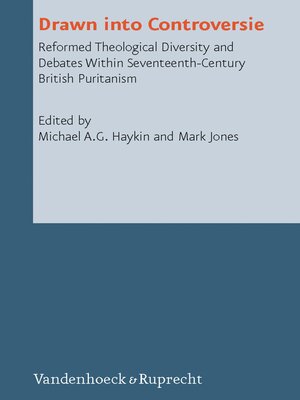Drawn into Controversie
ebook ∣ Reformed Theological Diversity and Debates Within Seventeenth-Century British Puritanism · Reformed Historical Theology
By Michael A. G. Haykin

Sign up to save your library
With an OverDrive account, you can save your favorite libraries for at-a-glance information about availability. Find out more about OverDrive accounts.
Find this title in Libby, the library reading app by OverDrive.



Search for a digital library with this title
Title found at these libraries:
| Library Name | Distance |
|---|---|
| Loading... |
By their very nature, traditions are diverse. This is particularly the case with theological traditions, even including those cases where they have been named for a single individual (e.g. Augustinianism, Thomism, Lutheranism, and Calvinism). In the eras of the Reformation and of Reformed orthodoxy there was intense theological debate, leading to confessional identity and confessional boundaries; hence the Remonstrant controversy in the early seventeenth century. What the essays of this volume look at, however, are the debates that took place within the Reformed theological tradition, particularly within Puritan England. Some of the debates considered here threatened to rise to a confessional level whereas others were not so serious insofar as they did not press on confessional boundaries. The Puritan tradition surveyed in these essays looks at both major and minor intra-Reformed debates. Most of these debates analyzed have been passed over in the older scholarship in its quest to find the few true Calvinians to oppose to the so-called Calvinists. By contrast, none of the studies included in the present volume brands one side of a seventeenth-century debate as un-Calvinian or identifies an alteration of doctrinal perspective as a declension from Reformation-era purity. Calvin no longer appears as a norm, although he does appear, with other Reformers, as an antecedent of certain lines of argument. Lastly, the essays document the ongoing concern among Reformed theologians to further the Reformation cause. In this pursuit, Reformed theologians, as they did during the time of the Reformation theologians, often found themselves disagreeing on a number of theological doctrines.







